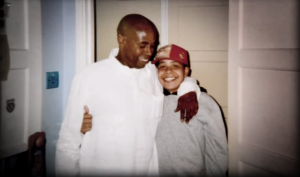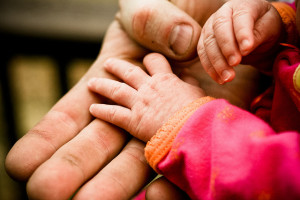If you have experienced the loss of a child, you probably have felt a sense of isolation in the loss. Unlike most other types of loss, the death of a child is something that rarely happens. Most of us know someone who has lost a grandparent, or even a parent, but far fewer of us personally know anyone who has lost a child. Many of us cannot imagine the pain this experience causes. For the bereaved, this means having fewer people to confide in when that pain becomes overwhelming.
Thankfully, The Compassionate Friends are there to pick up the pieces. This UK-based organization is focused on bringing bereaved parents, grandparents and siblings into one room to talk about the thoughts and feelings they have every day. Beyond giving people the space to air out their feelings, the organization teaches others how to speak with those who are bereaved.
Too often, people are at a loss for words when they hear about the death of a child. There’s not exactly an etiquette book out there for how to handle this situation.
The group’s message is simple: Say their name. Too often, people are at a loss for words when they hear about the death of a child. There’s not exactly an etiquette book out there for how to handle this situation. Every family member handles the death differently, so such a book would be ultimately useless anyway.
The Compassionate Friends say the best thing you can do for a grieving parent is to talk about the child. When you speak about children who died, you acknowledge their existence, and affirm their impact (however brief) on the world.
When parents are isolated from their friends and extended family, they have no one to express these sensitive and burning thoughts. The thoughts eat away from the inside out, with no space for relief.
Some parents feel they can’t possibly go on after the death of one of their children. They say they feel guilty about being alive, or express a desire to end their own lives. When parents are isolated from their friends and extended family, they have no one to express these sensitive and burning thoughts. The thoughts eat away from the inside out, with no space for relief.
When you offer your direct support to someone who has lost a child, you push away that feeling of isolation. It’s true that you might never understand how that parent feels, but you can provide an ear for them to tell you how they feel. Sometimes, all it takes is one person to reach out to make the greatest difference in someone’s life.
The Compassionate Friends released a video featuring interviews from bereaved parents and siblings in their network. In it, one woman, Jane, describes the hurt she felt when a close friend avoided her in public after finding out that Jane had recently lost her son. Jane explains that many people have a desire to avoid those who are experiencing grief, not because they are bad people, but because they don’t know what to say. What they might not realize is that this avoidance makes many parents feel like pariahs in their own communities.
Learn how you can reach out to people who have lost children, or how to cope with your own loss if you have lost a child, by watching the video below. Take a look at The Compassionate Friends’ other essential resources right here.

 Say Their Names: On Recovering After the Loss of a Child
Say Their Names: On Recovering After the Loss of a Child




 “Help Me, Helen”
“Help Me, Helen”

 “As Tears Go By” by Marianne Faithfull
“As Tears Go By” by Marianne Faithfull














